- BlackVoter.Org
- Posts
- BLACKVOTER.ORG #83
BLACKVOTER.ORG #83
Empowering Awareness: Stay Grounded With Blackvoter.org Newsletter!
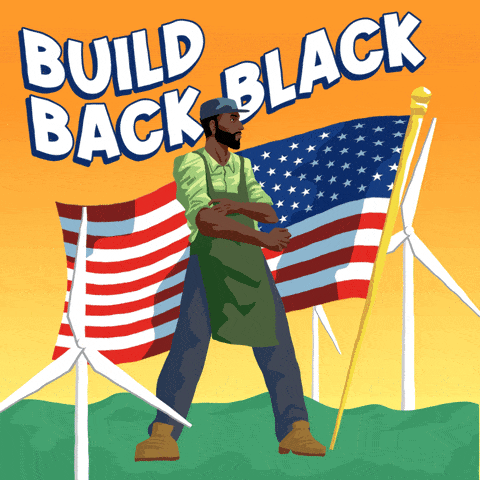


The last remaining survivors of the 1921 Tulsa Race Massacre, Viola Fletcher and Lessie Benningfield Randle, plan to continue their fight for reparations despite the recent dismissal of their lawsuit by the Oklahoma Supreme Court. The court upheld a district court's decision to strike down the lawsuit, which sought restitution from the city of Tulsa and other defendants for the mass violence perpetrated against Black Americans in 1921.
The survivors argue that the city profited from the destruction of the prosperous Black community of Greenwood, which was bombed and its residents killed or left homeless. The plaintiffs contend that the event created lasting racial divisions that still exist in Tulsa.
Their attorneys plan to file a petition for rehearing with the Oklahoma Supreme Court, challenging the court's decision and emphasizing that the case is about remedying wrongful acts and seeking justice. The attorneys also called for the Department of Justice to investigate the massacre under the Emmett Till Unsolved Civil Rights Crime Act.
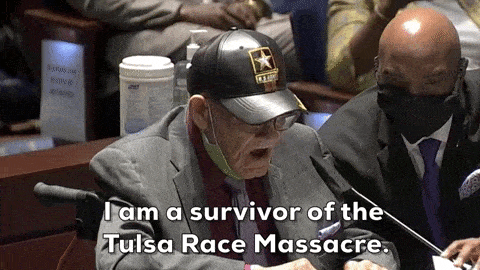

As polling results show former President Donald Trump making gains among Black voters, Democrats and political commentators are dismissing these findings as inaccurate. Multiple polls indicate that President Joe Biden's support among Black voters has decreased by 15 to 20 percentage points since the 2020 election in key swing states.
However, liberal pundits and Democrats do not seem to believe these numbers, with some even dismissing the notion altogether. For example, Rep.
James Clyburn argued that something is amiss with the polling, pointing to a recent election where a candidate won by a larger margin than predicted. Sunny Hostin of "The View" also dismissed the polls, stating that Black women will resoundingly show up for Biden.
Despite the skepticism, these polling results could have significant implications for future elections if Trump continues to gain ground among Black voters.
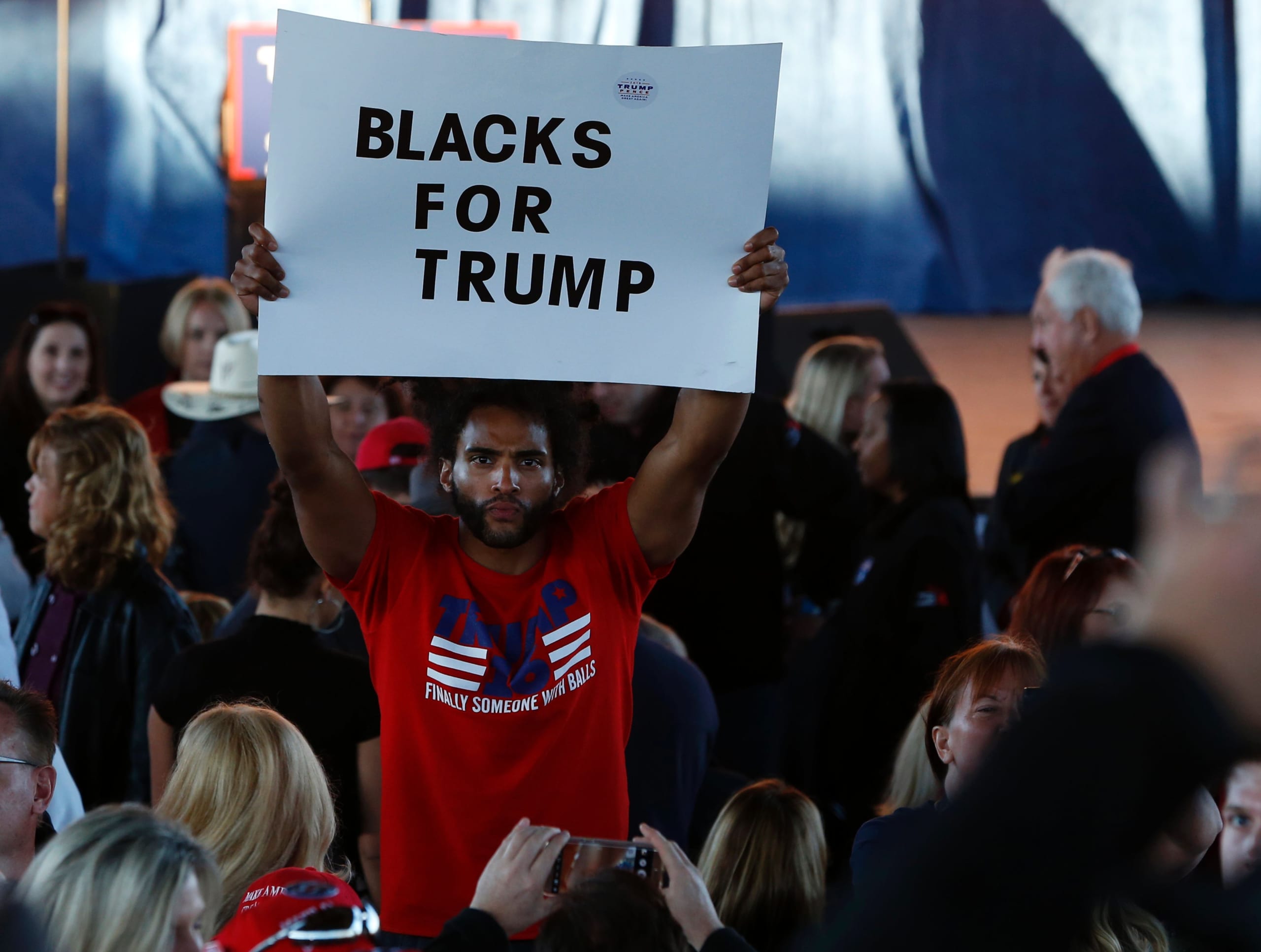
In this engaging article, the author discusses fictional Black characters who could potentially support Donald Trump. The author acknowledges that while most Black voters are unlikely to choose the Republican Party due to the perception that Republicans are racist and racially antagonistic, there is still a small percentage of Black voters who support Trump.
The author then goes on to explore which famous Black fictional characters might align with Trump's ideologies based on their characteristics and the research of scholar Leah Wright Rigueur. Characters such as Alonzo Harris from "Training Day," Roc Emerson from "Roc," and Carlton Banks from "The Fresh Prince of Bel-Air" are suggested as possible Trump supporters.
The author also raises the issue of Black Trump supporters cooning and aligning themselves with whiteness in an attempt to be protected from racism. The article concludes by noting that Black women are less likely to support Trump due to their focus on policy rather than personality.
Overall, the article presents an interesting and thought-provoking exploration of the topic.
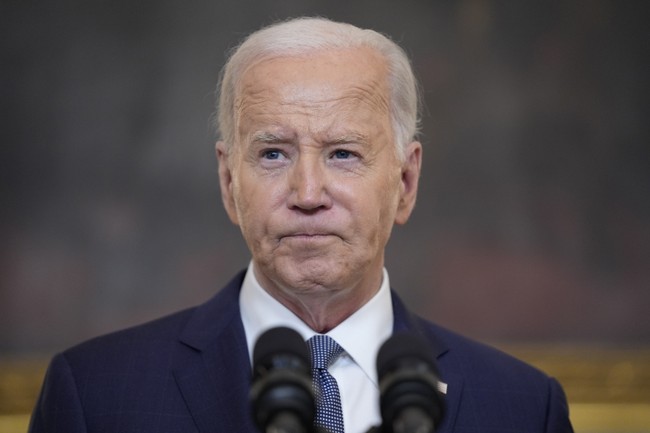
According to a recent article in HotAir, women voters and black voters are losing steam with President Biden. In previous elections, Democrat presidential candidates relied on women voters to secure victory, but this time around, Biden is struggling to maintain their support.
The article suggests that Biden's campaign is making a mistake by focusing on abortion as the main reason to vote for his re-election, as only a small percentage of women prioritize this issue. The economy, particularly inflation, has become a more central concern for women voters, benefiting former President Trump.
The article argues that women voters, who are often the main decision-makers in households, are feeling the impact of rising costs and stagnant wages. Moreover, Biden's lead among women has decreased since the 2020 election, while Trump's support among men has recovered.
It remains to be seen how these shifts in voter sentiment will impact the upcoming election.
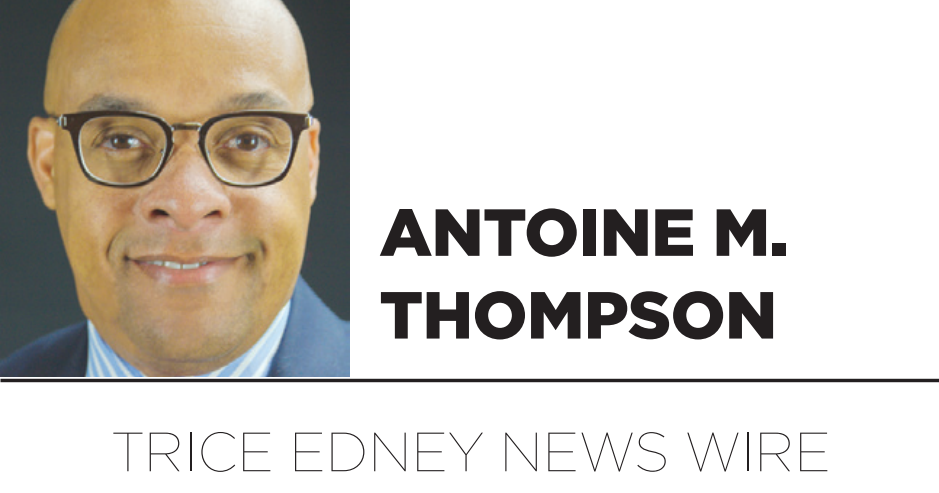
In this article, Antoine M. Thompson explores strategies to promote Black homeownership in the United States.
He begins by highlighting the historical promises and pledges made to freed slaves, including the provision of land and a mule, as a means of building wealth and achieving homeownership. However, many former slaves, and their descendants, were denied access to land and faced violence and discrimination from organizations like the Ku Klux Klan.
Thompson argues that racial disparities in homeownership persist to this day and suggests several strategies to address this issue. These include implementing federal student loan forgiveness for purchasing a home, creating down payment assistance and federal housing programs specifically for Black descendants of slavery, establishing homeownership zone programs in communities with low rates of Black homeownership, lowering mortgage interest rates, and increasing diversity in the housing industry.
Thompson concludes by expressing the hope that one day the promise of land and homeownership will be fully realized for Black Americans.
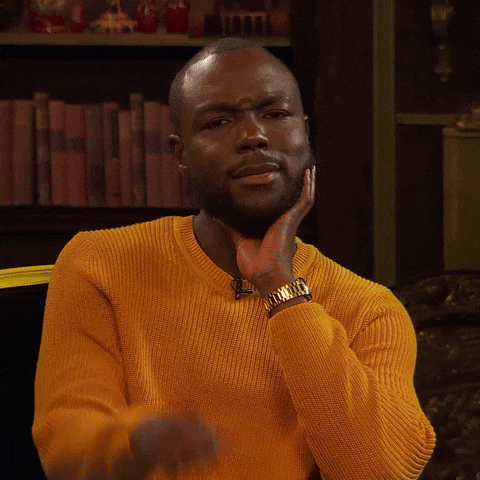

A recent Pew Research Center study revealed that over half of Black adults in the United States believe that the healthcare system was designed to hinder the health and success of Black people. The study, based on responses from over 4,700 Black adults, highlights the widespread mistrust within the Black community towards the medical system.
The findings underscore the significant barrier that mistrust poses in addressing racial health disparities in the country. Medical mistrust in the Black community is deeply rooted in a painful history of exploitation and betrayal, such as the case of James Marion Sims, who conducted experiments on enslaved Black women without anesthesia, and the Tuskegee Experiment, where 600 Black men were misled about receiving treatment for syphilis.
To combat this mistrust, the American Heart Association suggests implementing measures such as incorporating social justice and racism courses in medical schools, reviewing operations through a lens of racial equity, and improving patient-provider relationships.

According to a study conducted by Cornell University, the growing rural-urban political divide in the United States is primarily among white Americans. The study found that Black and Latino residents of rural areas differ far less from their urban counterparts in terms of political views than white residents do.
The researchers analyzed data from the Cooperative Election Studies survey and found that Black support for the Democratic Party remained consistent across rural and urban areas from 2008 to 2020, while white support showed a growing disparity between rural and urban residents. The findings raise concerns about political representation for Black and Latino Americans in rural areas and highlight the need for further research on rural people of color.
The researchers theorize that factors such as a sense of linked fate and social pressures may explain why rural Black and Latino Americans do not diverge politically from their urban counterparts.


The National Newspaper Publishers Association (NNPA) is hosting its annual convention to discuss the role of the Black press and the importance of voter turnout in the 2024 elections. Damon Todd Hewitt, president and executive director of the Lawyer's Committee for Civil Rights Under Law, was the keynote speaker at the convention.
He highlighted the challenges that Black people face today and emphasized the importance of protecting voting rights. Hewitt discussed the history of voting and the efforts of the Lawyers Committee to increase African American voter turnout.
He also raised concerns about voter suppression, including restrictive laws, intimidation, and misinformation. Hewitt called on the Black press to publish and spread information that can empower Black Americans to vote.
The convention also included panels on GenZ voter issues and sessions on financial planning and business. The second day concluded with the NNPA Fund's Messenger Awards Reception.

President Joe Biden's reelection in November may depend on the support of Atlanta's Black seniors, according to an article by Capital B News. Older Black voters, who have traditionally identified as Democrats, are seen as a key demographic in mobilizing support for the president.
The Seniors for Biden-Harris campaign is working to register voters living in retirement communities, highlighting issues such as affordable housing, Social Security, and healthcare access as important factors for their support. These efforts are crucial for Biden, as studies show Americans are generally less enthusiastic about voting for him or former President Donald Trump.
In the 2020 election, Biden's victory in Georgia was by a slim margin, so increased support from Black seniors could make a significant difference in securing his reelection.
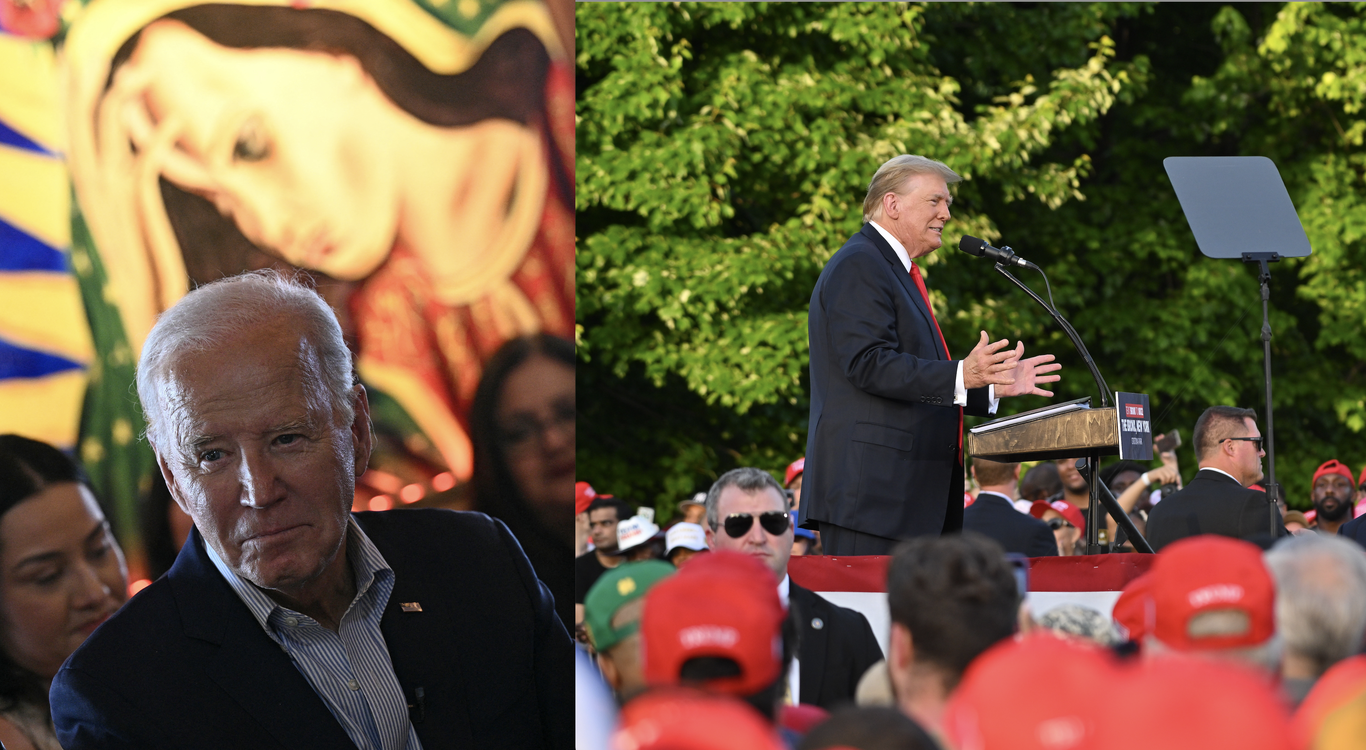
A new poll reveals that Latino voters no longer trust Democrats on immigration as much as they used to, with many identifying as independent and leaning towards the GOP. The Equis poll, which surveyed 1,592 registered Latino voters in battleground states, found that 41% of Hispanic voters trust former President Trump on immigration, compared to 38% for President Biden.
This shift in Latino voter preferences is a concern for Democrats, as immigration has historically been a key issue for this demographic. However, the poll also found that immigration is not the top concern among Latinos.
Instead, issues such as inflation and the economy take priority. President Biden is stepping up his outreach efforts to Hispanic voters in key states, while Trump has launched his own targeted campaign, creating a coalition called "Latino Americans for Trump.
" Biden's recent move to grant protection to half a million undocumented people with citizen spouses could potentially sway Latino voters in his favor.

Donald Trump's recent visit to Detroit to court Black voters has sparked debate about whether his efforts are brilliant or insulting. Co-hosts Adolph Mongo and Allan Lengel discuss Trump's visit on their podcast, exploring the motivations behind his campaign strategy.
Some argue that Trump's outreach to the Black community is a smart move, as he recognizes the importance of garnering Black support in order to secure his re-election. Others, however, see his efforts as disingenuous and dismissive, claiming that Trump is merely using the Black community as a campaign prop without actually addressing the issues that affect them.
The podcast aims to dissect Trump's actions and analyze the potential consequences of his play for Black votes in Detroit. Whether Trump's tactics will be successful and genuinely resonate with Black voters remains to be seen.

THANK YOU
BLACKVOTER.ORG
"Introducing 'Knox Discovers Democracy' – a delightful journey through the USA political process tailored for young children. Join Knox as he embarks on an adventure to learn about democracy, elections, and the power of voting. Through colorful illustrations and engaging storytelling, children will explore the importance of civic engagement and discover how their voices can shape the future. Get ready to inspire the next generation of active citizens with Knox's empowering tale!" Free ebook download Link below

